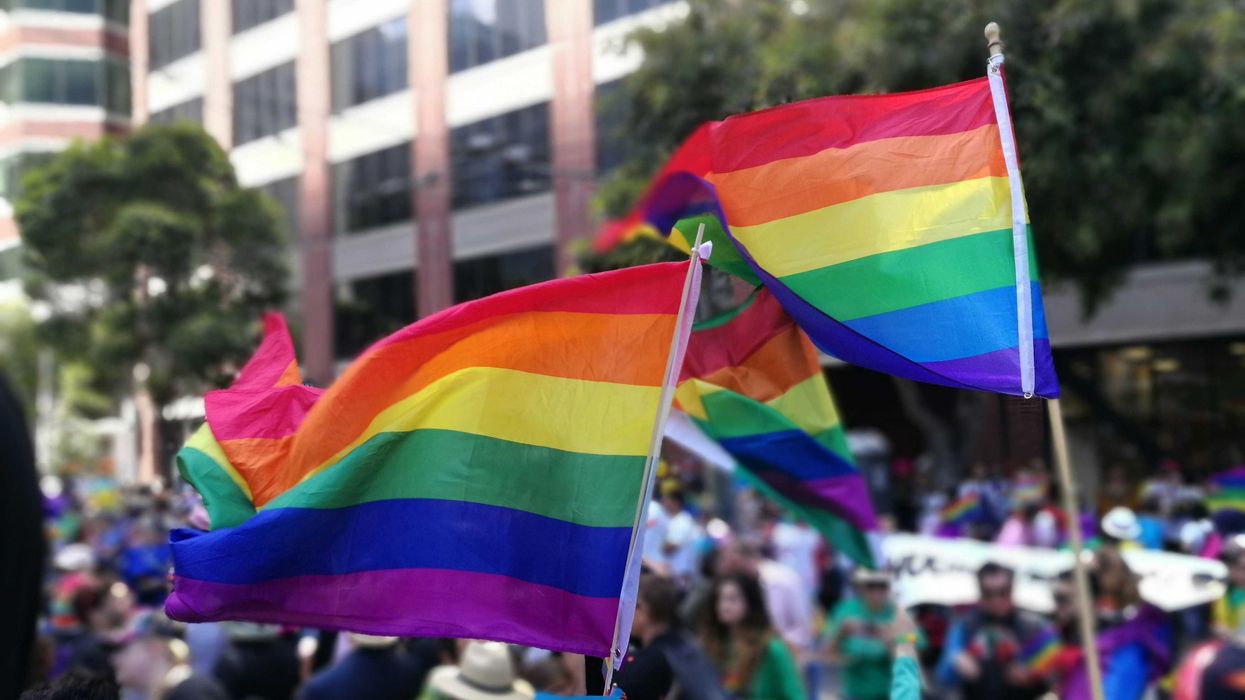When Charlie Kirk was tragically shot and killed on September 10th in Utah it sent shock waves through the country and raised a number of profound questions about his legacy and the views he spread through his Turning Point U.S.A. organization. Many went to the internet to find his quotes to perhaps hold a mirror up to his brand of white nationalism.
One quote should send chills down your spine. On a June 11th, 2024, episode of The Charlie Kirk Show, Kirk makes references to “stoning” and “putting gays to death” as the perfect law in response to Youtuber, Ms. Rachel who used the bible to suggest Pride month and support for it was an example of loving thy neighbor. While Kirk did not explicitly state or advocate the stoning of gays, his tongue and cheek usage of the passage described by some as a “joke” demonstrates a much longer history of gay hate in the United States and how the bible has been used to support anti-gay legislation.
Earlier this year Hillary Rodham Clinton remarked that the Supreme Court “will do to gay marriage what it did to abortion” sounding the alarm that marriage equality could be lost. In fact, recent calls for the overturning of gay marriage could soon be heard by the Supreme Court. If gay marriage falls many believe it could be a domino effect leading to a ban on interracial marriage as well.
For women, LGBTQ, African American, and American Indian people the 14th Amendment changed lives and gave many people protections to live free from legal discrimination and exclusion. The amendment to the U.S. Constitution formally granted U.S. citizenship to former slaves and contained three new limits on state power: “a state shall not violate a citizen’s privileges or immunities; shall not deprive any person of life liberty, or property without due process of law; and must guarantee all persons equal protection of the laws.”
What happens when states are allowed to discriminate?
If Obergfell v. Hodges (the case that made same-sex marriage legal) falls it could be yet another signal that our democracy is crumbling, not just for the LGBTQ community but for all Americans who seek equal treatment under the law. This includes religious freedom, fairness in employment practice, and a slew of other areas that impact white, Black, male, female, gay and heterosexual people alike.
Before the ratification of the 14th amendment on July 9th, 1868, Black people, American Indians, women and other ethnic and racial minorities did not have legal voting rights and other protection guarantees afforded to white citizens.
In 1875 for example, the Supreme denied women the right to vote in Minor v. Happersett. It would then be another 45 years before white women got the right to vote under the 19th amendment. Black women and other women of color still did not gain the full right to vote until 1965 just 60 years ago. In fact, American Indians, the first people of the United States, did not obtain citizenship until 1924 and could not vote in all states until 1957.
These rights were further extended by the Civil Rights and Voting Rights Acts. There is a growing risk that if Obergfell could fall (as Kim Davis a former county clerk who refused licenses to gay couples is appealing the decision which could go to the Supreme Court), and same sex marriage could once again become illegal many are opining that interracial marriage (also protected under the 14th Amendment) could follow in much the same way that Roe v. Wade was overturned in 2022 in the case of Dobbs v. Jackson Women’s Health Organization.
While women, people of color and the LGBTQ community gained more rights, it would take nearly another 100 years for the Civil Rights Act (1964) and the Voting Rights Act (1965) to be passed and to provide more meaningful legal protections and equal rights. These acts are also under attack and would negatively impact all Americans.
So, if gay marriage falls so could voting rights for women. So could anti-discrimination laws that protect interracial marriage. Repealing gay marriage would lead to a repeal of protections for all Americans.
So let this be a call to all of us to protect Civil Rights for this and future generations. Let us stand united to defend the freedoms of us all. The alternative is a world where none of us is free.
Dr. Andrew Jolivétte is a Professor of Sociology and Afro-Indigenous Studies at the University of California, Santa Barbara, an Adjunct Professor of Ethnic Studies at UC San Diego, and a Public Voices Fellow of the OpEd Project at UCSB. His latest book, Research Justice: Methodologies for Change, was published earlier this year.




















